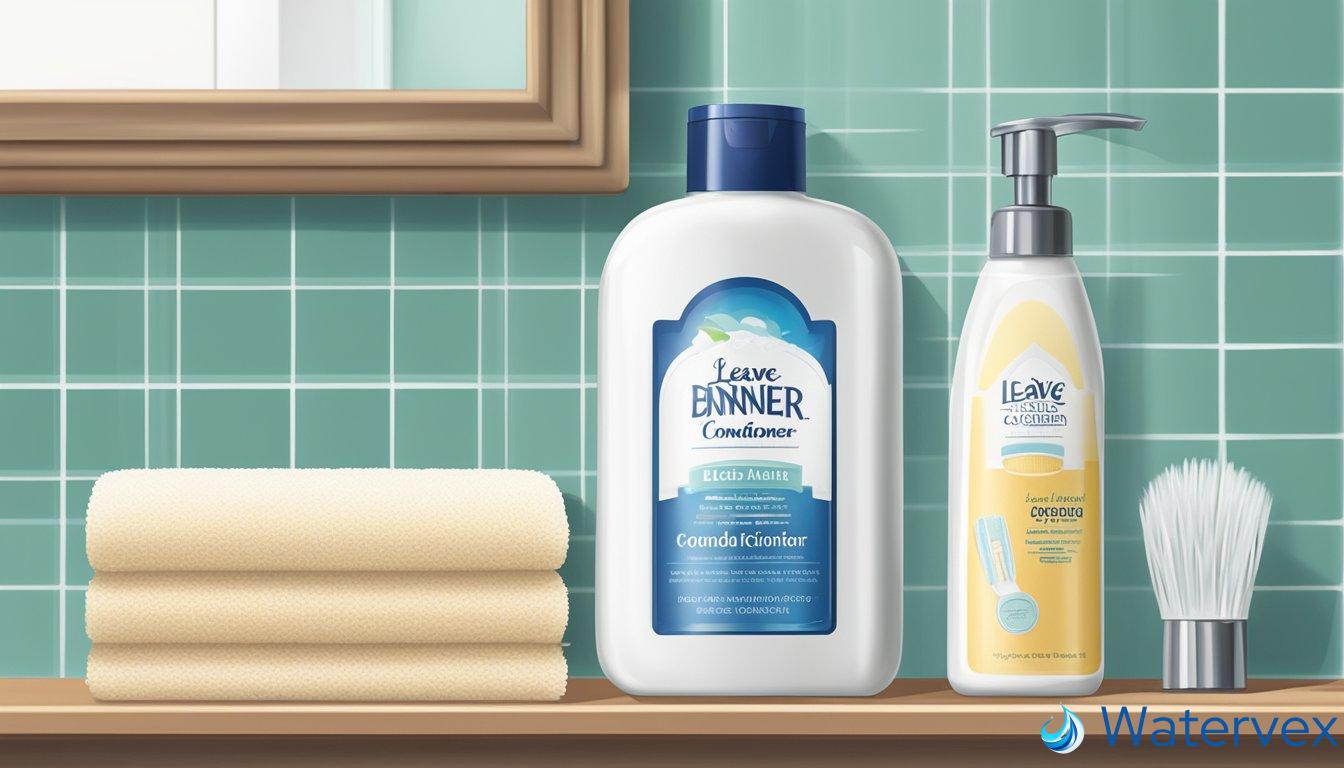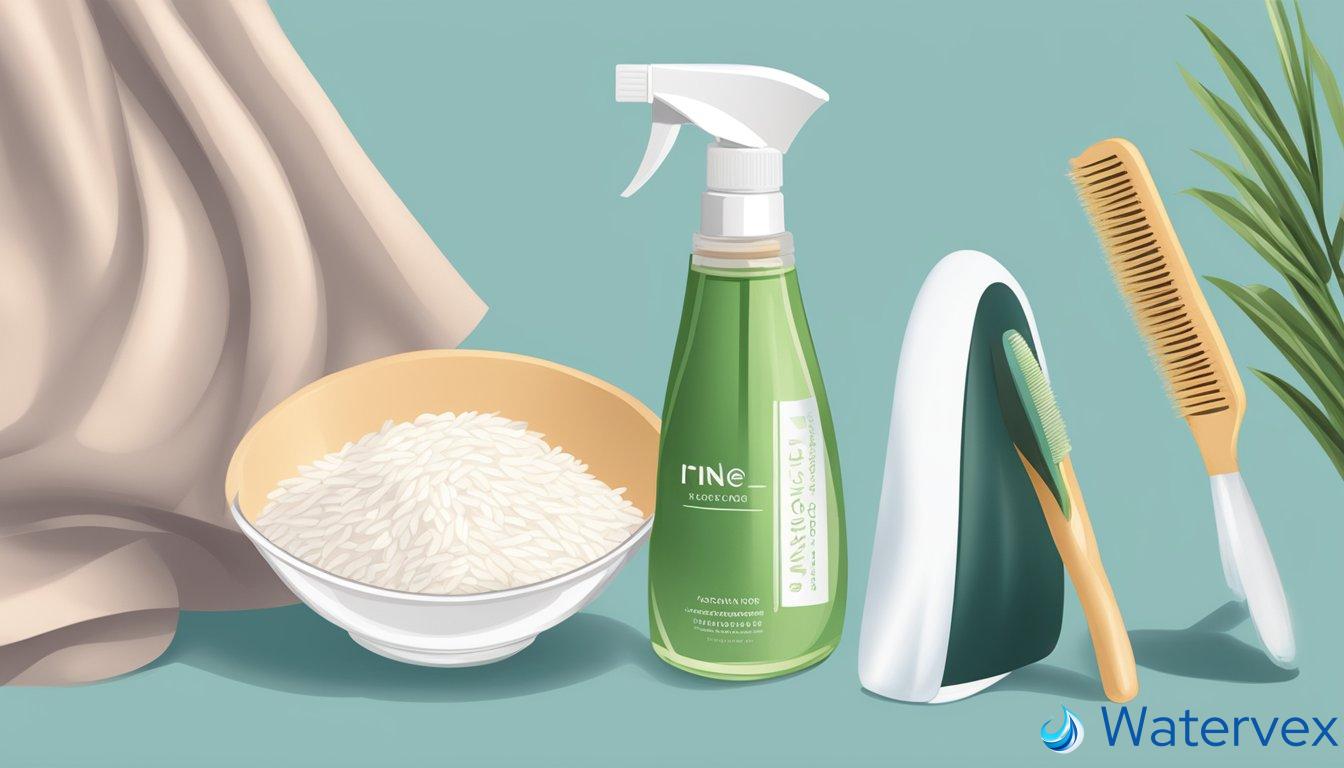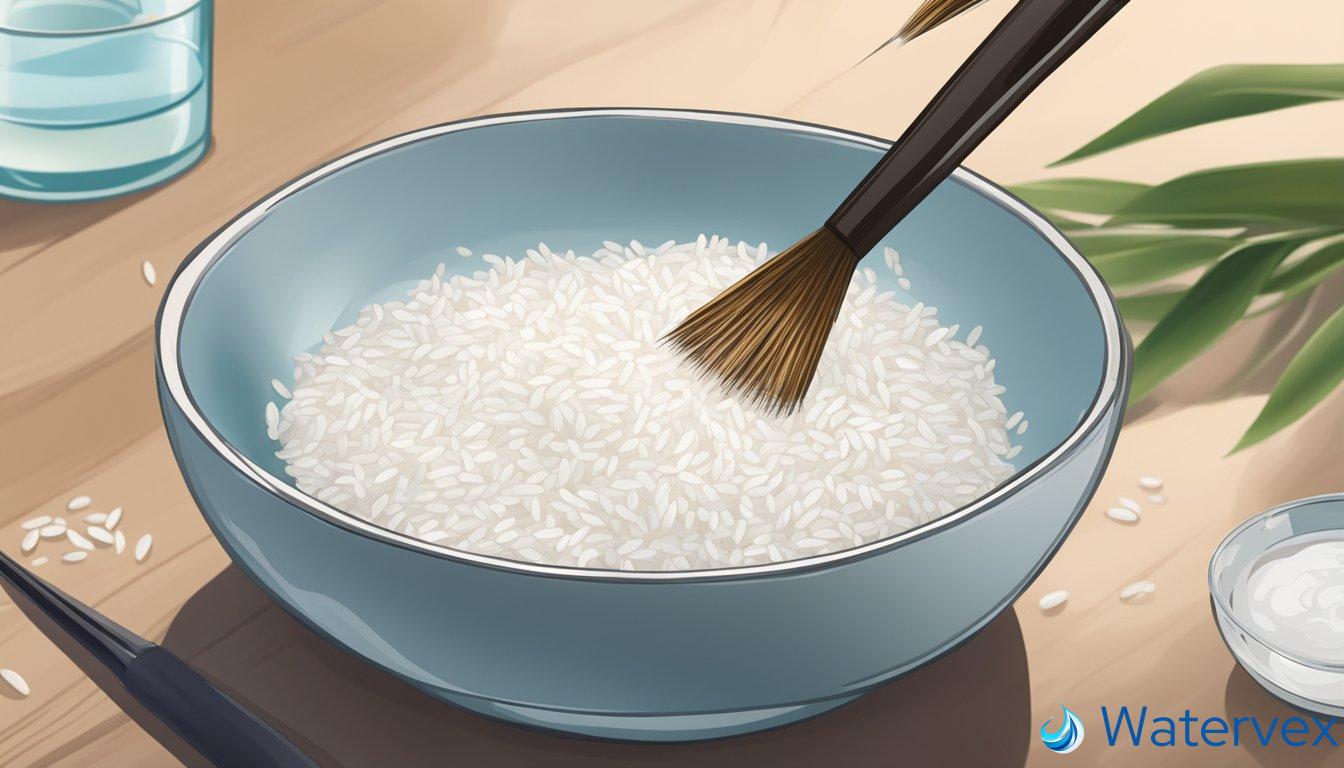Rice water is becoming increasingly popular as a natural hair treatment, reputed for its ability to enhance hair health. Traditionally, it has been used in various cultures for nourishment, appearing in modern routines as a rinse after shampooing and conditioning. Now, the spotlight is on its potential as a leave-in conditioner, providing a lightweight option for hair care seekers.

As you integrate rice water into your hair care regimen, you might wonder about its suitability as a leave-in treatment. Given that a leave-in conditioner should be hydrating without weighing hair down, rice water is considered a good candidate because it is thought to contain several hair-benefiting nutrients including amino acids, vitamins, and minerals. These components can contribute to strength, shine, and overall hair health.
Understanding how to prepare and apply rice water is crucial for optimal results. For a homemade blend, rice is soaked, fermented, or boiled to extract the beneficial water, which is then applied to the hair. Adapting the application process to suit your hair’s individual needs and preferences—whether as a spray or a pour-on rinse—can make a difference in achieving the desired outcomes.
Key Takeaways
- Rice water is praised for potential hair health benefits as a leave-in conditioner.
- Contains nutrients that may strengthen and improve hair shine.
- Proper preparation and application are essential for effective use as a leave-in treatment.
Is Rice Water a Viable Leave-In Hair Treatment?
Rice water has attracted attention for its potential benefits for hair health, but whether it serves as an effective leave-in treatment warrants a closer look.
The Science and History Behind Rice Water
Rice water, which is the starchy water left over after rice has been washed or boiled, has been used for centuries, particularly in the Heian period in Japan, as a remedy for stronger, longer hair. This historical practice aligns with modern research that indicates rice water is rich in vitamins B, C, and E, amino acids, minerals, and antioxidants. These components are essential in the maintenance and growth of healthy hair.
Inositol, a carbohydrate found in rice water, has been shown to penetrate damaged hair and repair it from the inside out. This means rice water could potentially improve hair’s elasticity and reduce surface friction, making it a candidate for a leave-in treatment that not only detangles but also fortifies the hair shaft.
Professionals such as dermatologists and trichologists sometimes point towards the protein content in rice water as a double-edged sword. While it can be strengthening, too much protein can lead to brittle hair for some individuals. Therefore, its suitability may vary from person to person, making it crucial to watch for any signs of excess protein buildup.
Scientific evidence supporting rice water as a leave-in treatment is not conclusive, but the anecdotal success stories are compelling. The amino acids present are known to aid in the regeneration of hair and combined with minerals that help in strengthening the cuticle; rice water can be considered as a multifaceted treatment.
In conclusion, while you may be interested in the potential hair health benefits of rice water as a leave-in conditioner, it’s essential to consider your specific hair type and health when determining its suitability for you. Prolonged or excessive use, without proper balance and care, could lead to hair that is more prone to damage.
What Are the Benefits of Rice Water for Hair?

Rice water has surfaced as a natural remedy that may enhance the health of your hair. Now, let’s look at how this simple ingredient can impact your hair’s vitality and solve common hair woes.
Improving Hair Texture and Appearance
Using rice water can contribute to improved hair texture and appearance. Whether you have straight hair, wavy locks, or curly tresses, it brings a unique set of benefits. Rice water contains inositol, a carbohydrate that shows promise in enhancing hair elasticity and reducing surface friction, which can make your hair easier to detangle and less prone to breakage. Additionally, rice water is said to help in nourishing the hair cuticle, resulting in shinier and softer hair.
Addressing Hair and Scalp Problems
Rice water may also address specific hair and scalp issues. Its use is associated with soothing scalp inflammation, minimizing occurrences of dandruff, and potentially easing dermatitis. The starch content may help in dealing with dry or damaged hair, as it can create a temporary barrier and provide proteins that reinforce hair strength. For those with aged hair that’s lost its vitality, rice water might assist in reducing hair loss and supporting hair’s youthful texture. However, it’s essential to consider your hair’s porosity when using rice water, as it could influence the outcome of this treatment.
How Do You Prepare and Apply Rice Water Correctly?

Creating your own rice water at home and applying it correctly can lead to improved hair strength and shine. This natural remedy, when done rightly, can act as a leave-in conditioner.
Creating Your Own Rice Water at Home
To create rice water, first, choose uncooked rice, which is a vital base for your mixture. Begin by rinsing the rice to remove impurities. Next, soak it in water for 30 minutes or boil it with an excess amount of water. After the soaking or boiling process, use a strainer to separate the rice from the water. This water can be used immediately or left to ferment for a day or two until it becomes slightly cloudy, which enhances its properties. Fermented rice water is a potent strengthener, as it allows the nutrients to proliferate, enriching the solution.
Ingredients:
- 1/2 cup uncooked rice
- 2-3 cups of water
Directions:
- Rinse the rice thoroughly.
- Soak or boil the rice in water.
- Strain the mixture and collect the rice water.
- For fermentation, leave the water at room temperature for up to 2 days.
To boost the nourishing properties, you might add a few drops of essential oils like lavender or tea tree, or ingredients like honey, to customize your treatment.
Best Practices for Applying Rice Water
When using rice water as a leave-in conditioner, it’s essential to apply it safely and effectively to reap the maximum benefits. Firstly, transfer your rice water into a spray bottle for easy application. Spray the rice water onto wet hair after your regular shampooing routine, focusing particularly on the hair strands and scalp for an even coating. For additional conditioning, mix the rice water with shea butter or coconut oil to create a treatment mask, and cover your hair with a plastic cap or shower cap.
- How to Apply:
- Pour rice water into a spray bottle.
- Spray onto wet hair, evenly distributing it.
- Optionally, combine with a carrier oil for a DIY mask.
- Leave it on your hair; no need to rinse it out.
Rice water is considered safe for all hair types, including color-treated hair. However, experts recommend limiting its use: once a week as a deep conditioner or twice a week as a leave-in for lighter use. Pay attention to your hair’s response, as protein overload can occur with excessive use.
Remember, while rice water has been endorsed by many as a beauty remedy, its effects can vary. Start by integrating it slowly into your regimen, and notice the way your hair responds before making it a regular part of your home remedy arsenal.

